New Year's Eve is the transitional moment between the last day of the old year and the first day of the new year. This is one of the important ceremonies in the customs and cultures of many ethnic groups.
What day is New Year's Eve?
New Year's Eve takes place on December 31. According to the international date line, the Line Islands, some islands in Polynesia, Australia and New Zealand are the first places in the world to celebrate the New Year.
New Year's Eve this year takes place on Sunday, December 31, 2023.
On this occasion, many countries often organize fireworks or festivals to celebrate the New Year.
Lunar New Year's Eve will take place at exactly 12 midnight on the 30th of the 12th lunar month. If the month is short and does not have a 30th, New Year's Eve will fall on the night of the 29th of the 12th lunar month.
According to the concise Sino-Vietnamese dictionary by Dao Duy Anh, New Year's Eve means "The old year passes, the new year takes over - When the old year passes, the new year comes".
New Year's Eve, also known as the 30th night, is the time before midnight, the moment of transition between the old and new year. New Year's Eve is the most sacred time of the year when families gather to prepare to welcome the new year with good things to come and bid farewell to the old year.
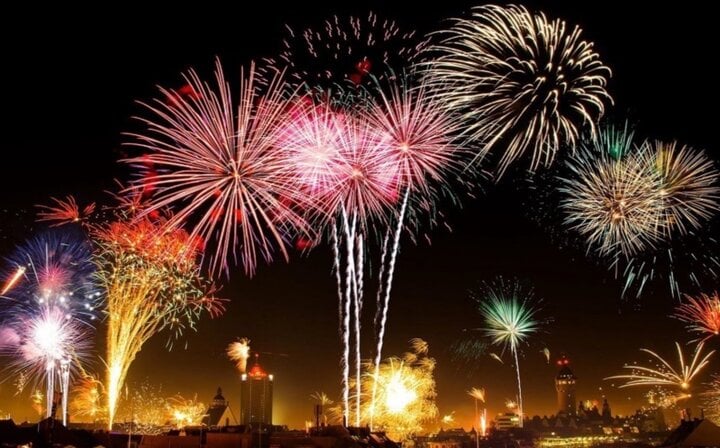
Fireworks were shot off at the moment of New Year's Eve.
How do countries around the world celebrate New Year's Eve?
Each country has different ways of celebrating New Year's Eve. In France, people drink wine and party together on New Year's Eve.
In England, many people will gather in Trafalgar Square and Piccadilly Circus, listen to the bells of London's Big Ben to announce the arrival of the new year, hold hands and sing Auld Lang Syne . They will also buy gifts and cakes to visit friends and relatives on New Year's Eve.
In North American countries like the US and Canada, couples will kiss at the moment of New Year's Eve, both to maintain their feelings and to wish for a start filled with love.
In Brazil, people wear white on New Year's Eve and release white flowers into the ocean to show gratitude to the goddess of the sea.
Some Asian countries still celebrate the traditional New Year according to the lunar calendar. However, on New Year's Eve, they also hold fireworks and parties to welcome the new year.
New Year's Eve customs in Vietnam
In Vietnam, New Year's Eve fireworks are also one of the major events that many people are interested in. At this time, people often go out to welcome the new year or organize small parties, gathering with relatives and family.
Vietnamese people pay more attention to Lunar New Year's Eve. According to ancient customs, on New Year's Eve and New Year's Eve, every family holds outdoor and indoor ceremonies, carefully preparing to welcome the first visitor of the year, bringing the God of Wealth into the house.
Between December 30 (or 29) and January 1, the hour of Ty (from 11pm the previous day to 1am the next day), in which, the starting time of Chinh Ty hour (0h 0m 0s 0s January 1) is the most important moment of Tet, marking the transition between the old year and the new year, called New Year's Eve.
To mark this moment, people often prepare two trays of food. One tray is for the ancestors at the altar in their house and one tray is for heaven and earth in the front yard.

Vietnamese people burn incense to remember their ancestors on New Year's Eve.
In addition, on New Year's Eve, Vietnamese people always maintain the traditional custom of giving lucky money. According to custom, adults will give lucky money to children in the form of new money or in red envelopes, along with wishes for health, success, and happiness from everyone to each other.
After the New Year's Eve offering, people often go to the temple to pray for the Gods and Buddhas to bless their families with a peaceful and happy new year. According to folk beliefs, when going to the temple at the beginning of the year, people will go to the temple garden to pick a branch of leaves called "picking luck" with the meaning of bringing the luck of the Gods and Buddhas home. This branch of luck will be displayed in front of the family altar until it dries up.
The old saying “buy salt at the beginning of the year, buy lime at the end of the year” is a traditional custom that has been maintained since ancient times. Salt not only has the meaning of warding off evil spirits and bad luck, but it also has the meaning of expressing the emotional connection of family relationships, healthy and harmonious children.
Therefore, after New Year's Eve, people often buy small bags of salt wrapped in yellow or red paper bags in neighborhoods and markets.
Thanh Ngoc
Source





![[Photo] Prime Minister Pham Minh Chinh inspects and directs the work of overcoming the consequences of floods after the storm in Thai Nguyen](https://vphoto.vietnam.vn/thumb/1200x675/vietnam/resource/IMAGE/2025/10/08/1759930075451_dsc-9441-jpg.webp)

![[Photo] Prime Minister Pham Minh Chinh attends the World Congress of the International Federation of Freight Forwarders and Transport Associations - FIATA](https://vphoto.vietnam.vn/thumb/1200x675/vietnam/resource/IMAGE/2025/10/08/1759936077106_dsc-0434-jpg.webp)
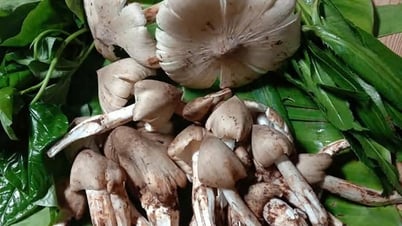

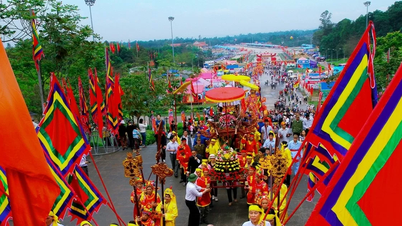



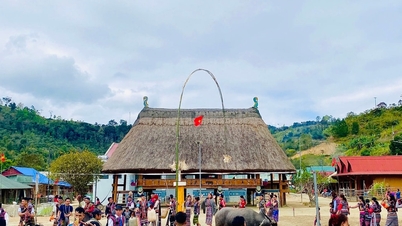






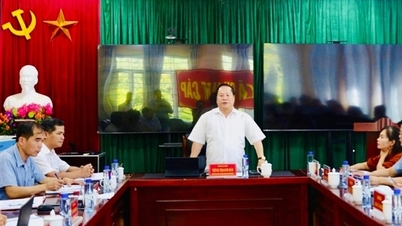

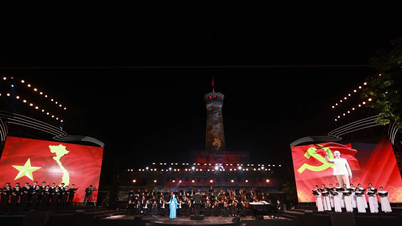





































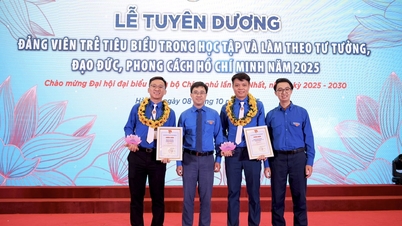






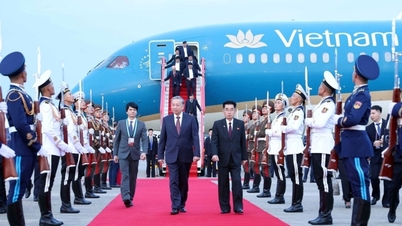



















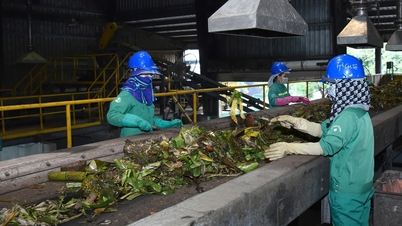


















Comment (0)